Yellowstone National Park
A Photo Journal of America's First and
Best National Park
Article Date: January, 2015
Article and Photography by Mark Quasius
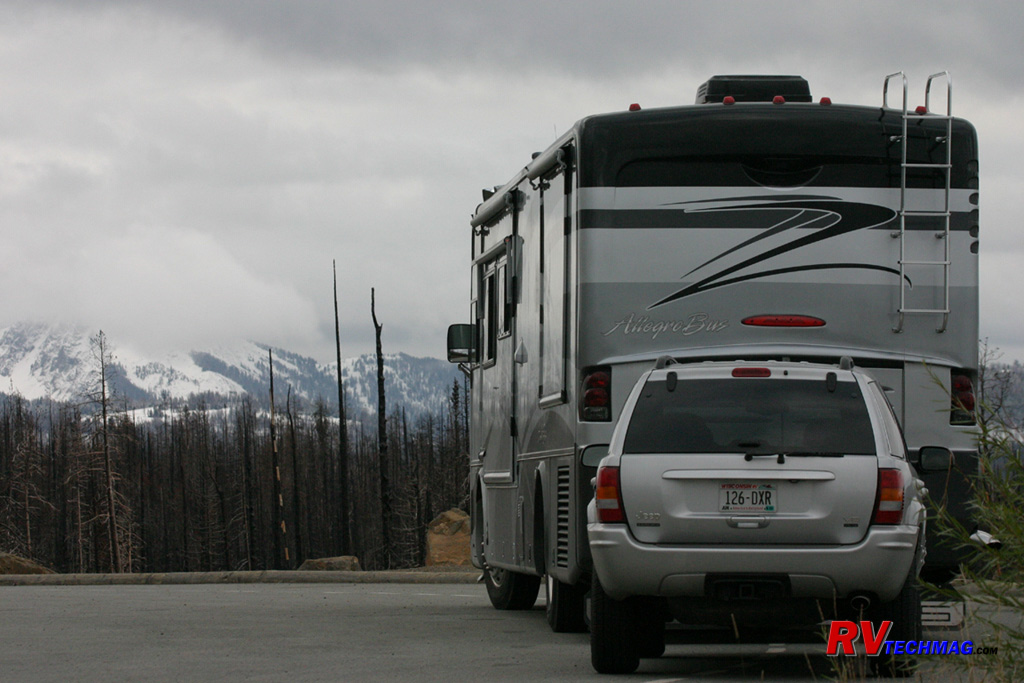
Mammoth Hot Springs
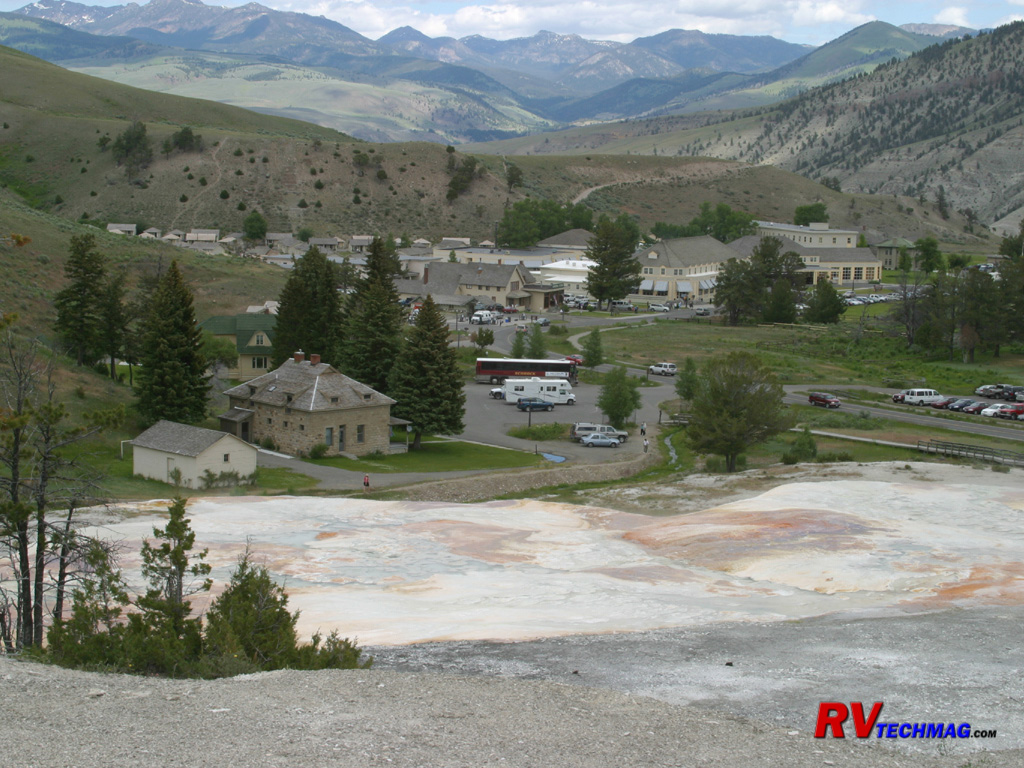
US-89 North of Gardiner
Mammoth is the park's headquarters and is located at the northwest corner of the park. It is easily accessed via the north
entrance from nearby Gardiner, Montana. Originally Yellowstone was administered by the US Army until 1918, when the National Park Service was formed
and took over the task of administering Yellowstone. The original army parade grounds, barracks, and offices remain and are now utilized by the park
service. The biggest feature that attracts visitors to Mammoth are it's thermal terraces. Thermal features come in many shapes and forms. The ever
popular geysers are mostly found in the Old Faithful, Norris, and West Thumb areas while bubbling mud pots and fumaroles are found in the Fountain
Paint Pots area. The Mammoth area doesn't have these but it's hot springs hang on the steep slopes towering over the village and have built up
travertine terraces that are unrivaled anywhere else. These terraces took many years to build themselves to this height but it's easy to see the
changes in them from year to year. The mineral laden boiling water rises to the surface, depositing the mineral in pools, building the terraces.
Eventually this water cascades down the sides and forms a castle like structure with many levels. Some will dry up while new ones appear in different
locations. Some previously dormant springs will return to life many years later as the subterranean plumbing constantly reroutes itself. In addition,
the Mammoth area is a very popular gathering spot in the fall for the northern range elk herd. The bugling of bull elk echoes throughout the
surrounding hills as they gather their harems. This is a popular gathering spot for tourists during the fall as they gather to view the show that the
elk put on. Leaving Mammoth, one can drive south through Golden Gate towards the Norris area or head east over the Blacktail Plateau to the
Tower-Roosevelt Area.

Mammoth Village
This view of Mammoth Village was taken from on top of Main Terrace. It shows the village area as surrounded by the mountains
around it. The historic Mammoth Hotel can be seem in the right-top corner with its cream colored columns. The many other building in the area are all
park service building that were built and formerly occupied by the US army, who managed the park prior to 1918, when the National Park Service
was formed.
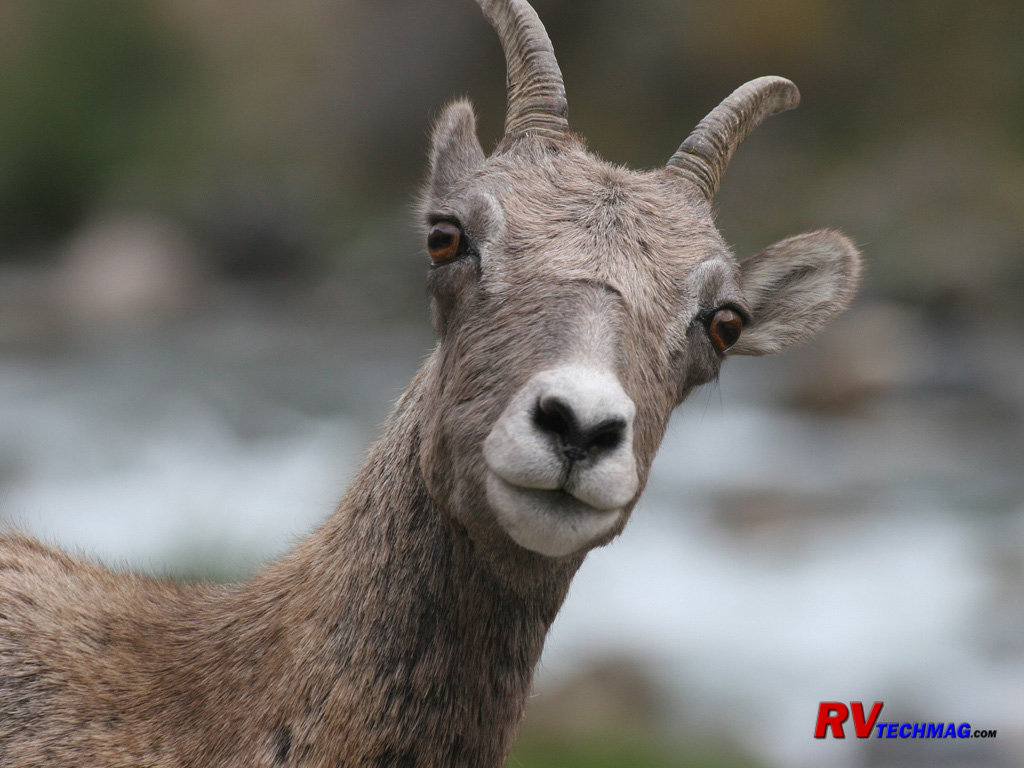
Bighorn Sheep
Bighorn Sheep frequent steep rocky slopes where they can easily evade predators. Their
hooves are specially designed for both
traction and durability in the sharp rocks and shale. Bighorn Sheep are frequently seen in Gardiner Canyon just north of Mammoth. They descend the
steep rocky slopes and cross the road on their way to the Yellowstone River to get water.
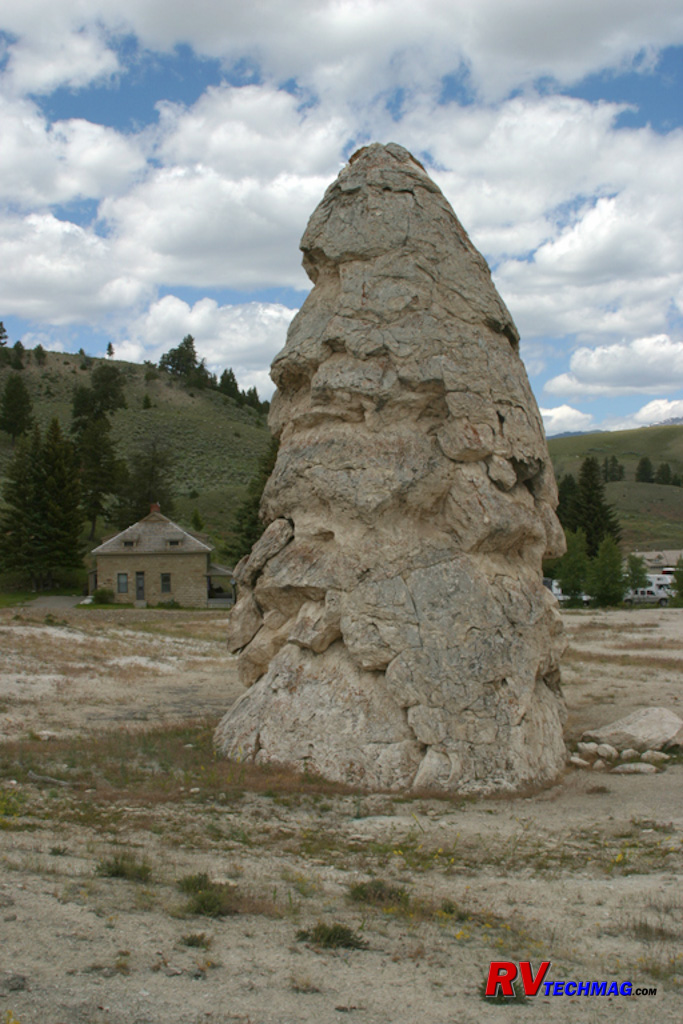
Liberty Cap
In Mammoth Village, near the base of the lower terraces is Liberty Cap. Liberty Cap is a dormant geyser cone. At one time the
cone spewed forth hot water, but as it did the cone grew larger, eventually clogging the orifice. It now stands as a tower of solid geyserite and
derives its name from a style of hat that was popular during the American Revolution.
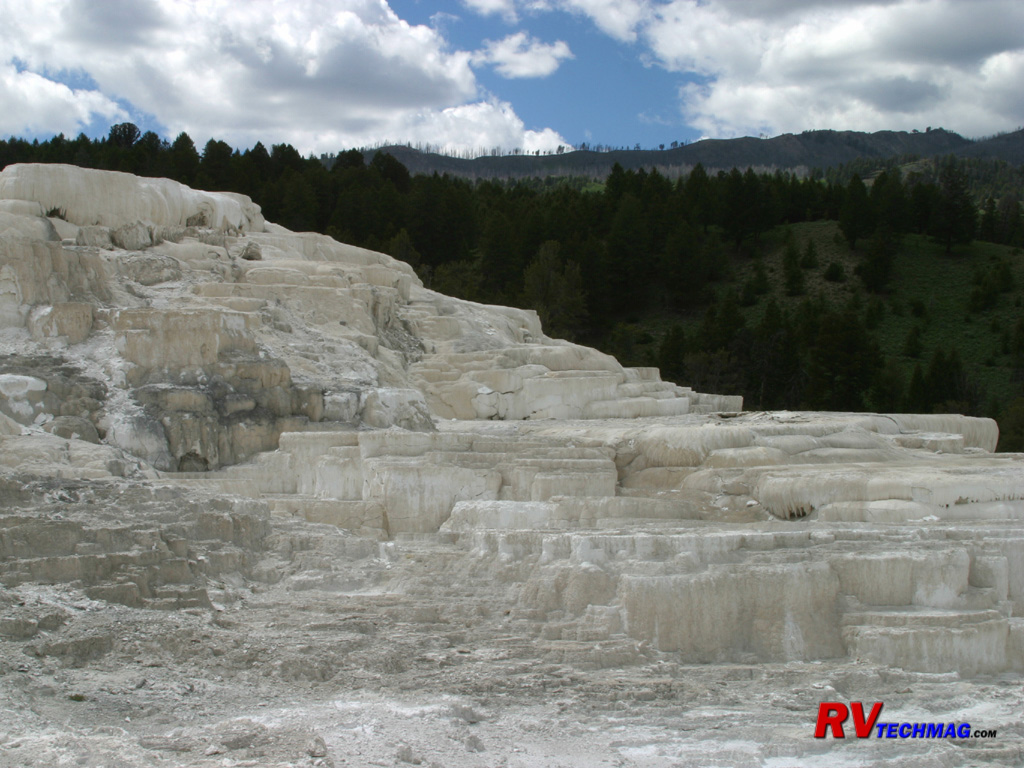
Minerva Terrace
The terraces are constantly in change. In 1991 Minerva Terrace was vibrantly flowing and its colorful mineral water was
cascading down each layer. In 2003 these terraces had all but dried up. Minerva Terrace is found at the base of the cliff where the larger Jupiter
and Main Terraces are found resting up top.
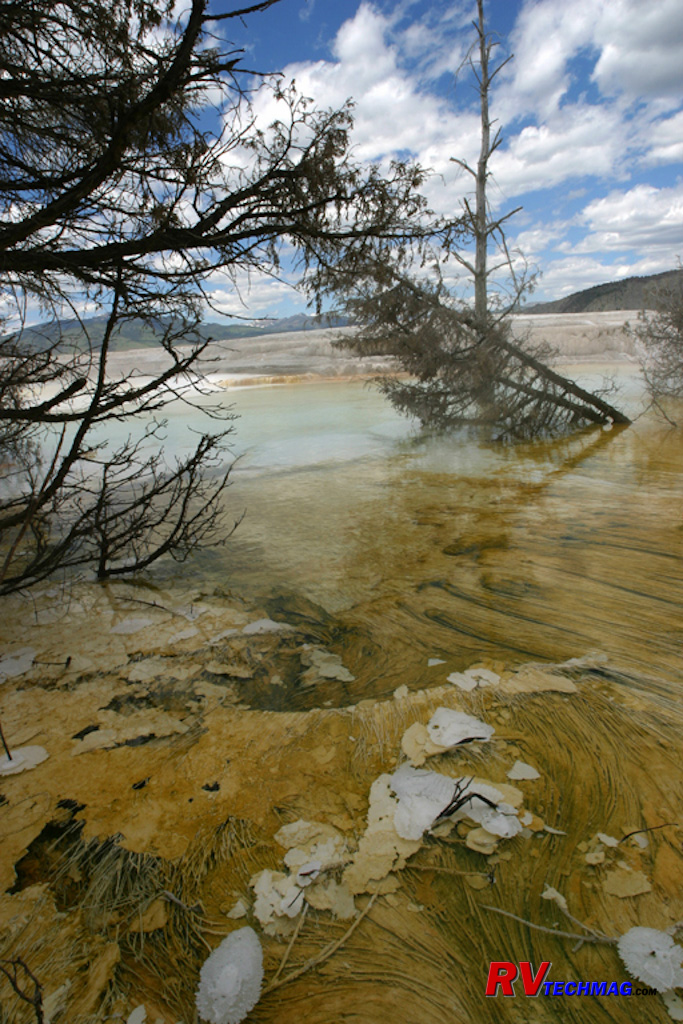
Main Terrace
Main Terrace was the feature event in the early 1900s. Since the 1960s it has pretty much dried up and the water diverted to
other areas. Recently the Main Terrace has begun a resurgence on its southern flank. The steaming pools in this section have overtaken the original
boardwalks and are now host to a variety of algae.
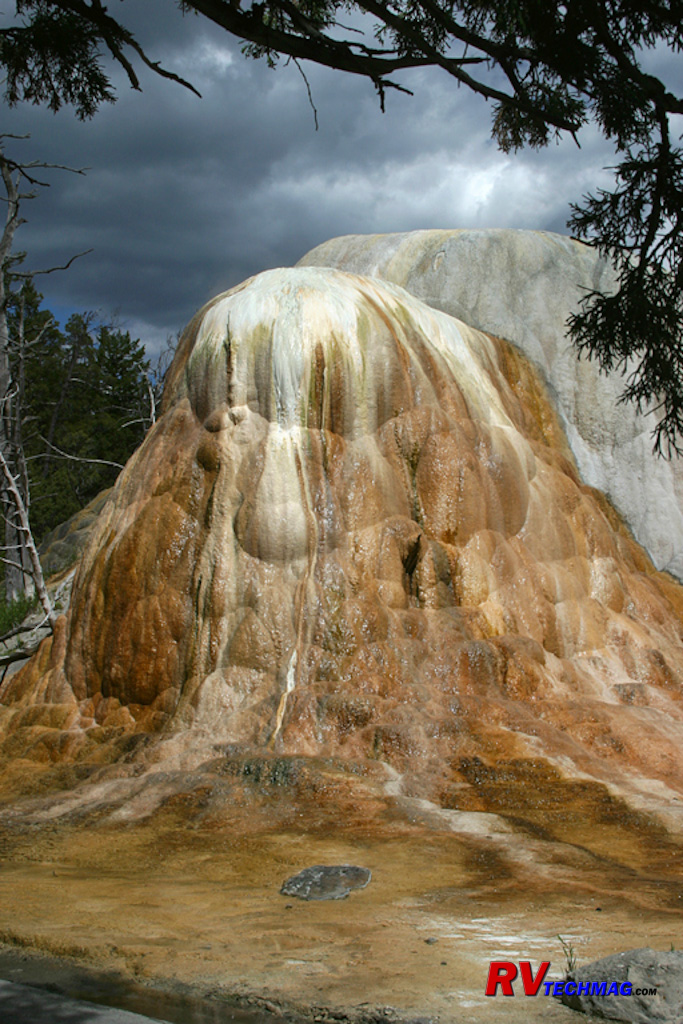
Mound Geyser
Hidden behind Main Terrace is Mound Geyser. While originally a geyser, with cyclic eruptions, it is now a steady flowing spring.
It steaming hot waters flowing steadily down its face reveal the heavy iron content as well as calcium in its waters.
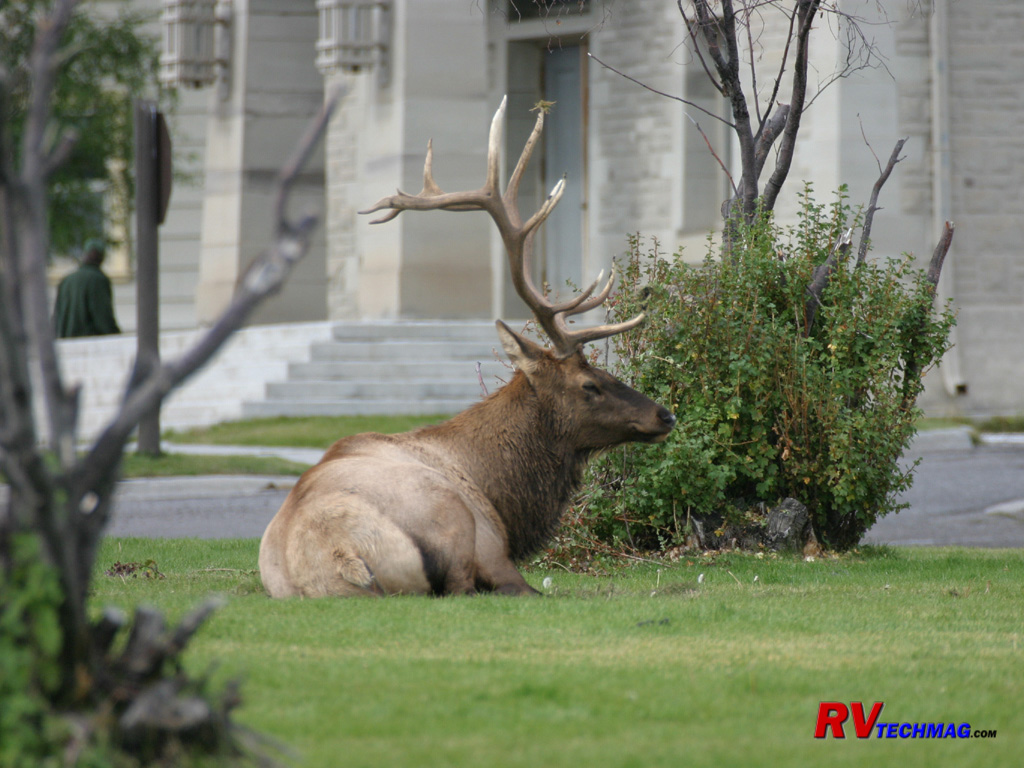
Resting Elk
During the fall rut bull elk expend a great deal of energy gathering their harems. In the Mammoth area many bulls can be seen
resting in the public areas. It's important to give these animals some breathing room because they can get irritated easily and have been known to
charge both people and vehicles with their sharp antlers.
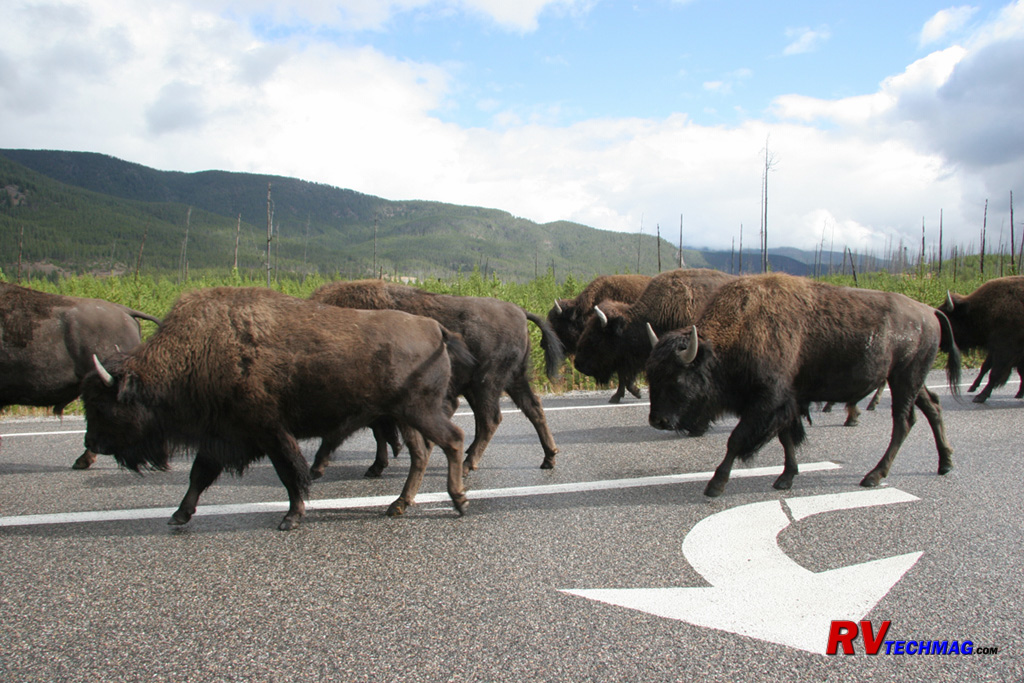
Bull Elk
This bull stands resplendent in the September sun as he keeps watch over his harem. The mountains in the background are the
Madison Range, just west of the Mammoth area.
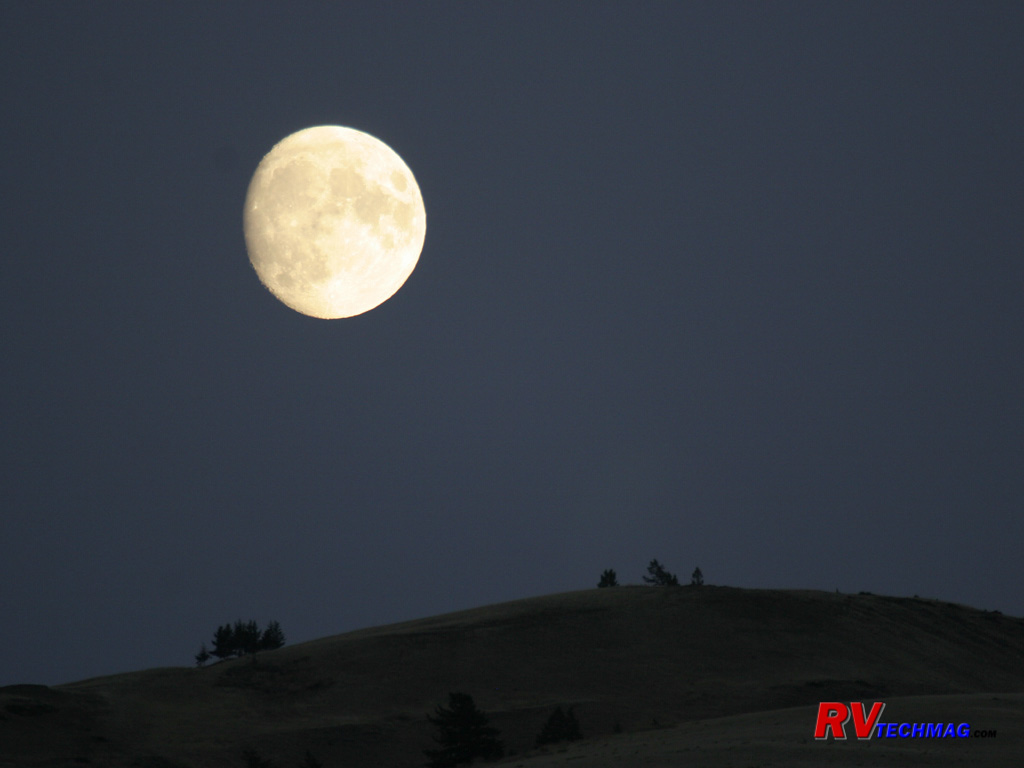
Moon Over Mammoth
This not quite full moon shines over the park in this mid September setting.
Return to Home Page
If you enjoyed this article be sure to recommend RVtechMag.com to your friends, like us on Facebook or Twitter
or subscribe to our RSS feed.



|














